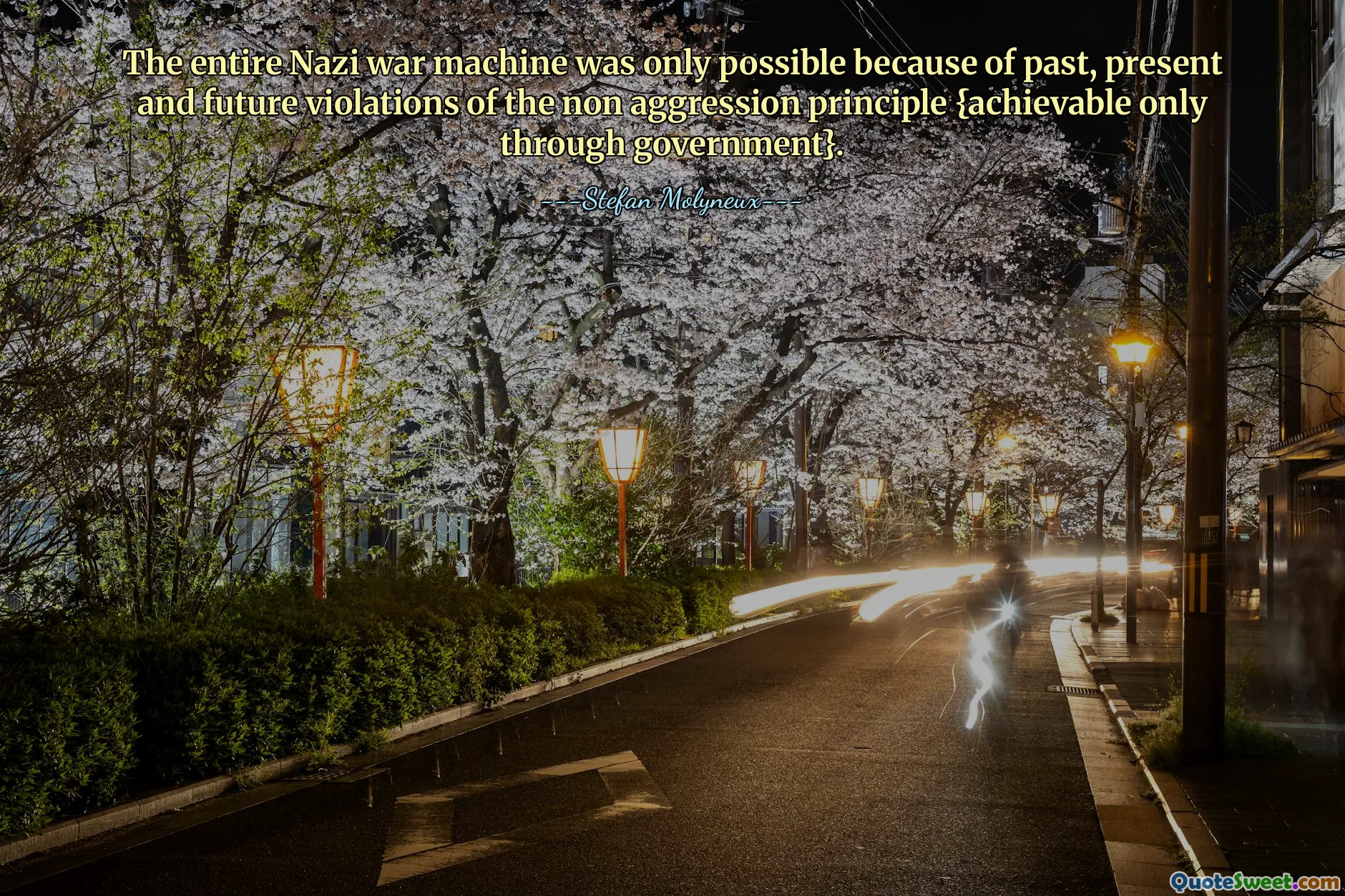
The entire Nazi war machine was only possible because of past, present and future violations of the non aggression principle {achievable only through government}.
This quote offers a stark perspective on the relationship between state power and ethical violations, particularly through the lens of historical atrocities like those committed by the Nazi regime. It privileges the concept of the non-aggression principle (NAP), a foundational idea in libertarian and anarchist thought, which asserts that aggression against another's person or property is inherently wrong. The assertion here is that such a war machine, which symbolizes systemic and widespread cruelty and devastation, could only be mobilized by successive violations of this principle. Furthermore, it posits that these violations are inherently tied to the structure and authority of government.
Reflecting on this, one is prompted to contemplate the critical role government plays in shaping societal actions, for better or worse. The quote implies that governments, by their nature, harbor the capacity to violate personal sovereignty on a massive scale—something individuals or unofficial entities could scarcely achieve without institutional power. It challenges us to critically evaluate not just the actions of historical governments but the nature of government itself. Are all governments by design agents of aggression? Or is it that certain forms or expressions of government become capable of such offenses?
Additionally, the mention of past, present, and future violations underscores a cyclical or ongoing problem, hinting at the inherent risk of government overreach centuries beyond the Nazi era. While the historical context is specific, the implication is universal and timeless. This viewpoint may not resonate with all, especially those who see governments as protective bodies that can uphold order and rights. Yet, it serves as a provocative reminder to remain vigilant about the concentration of power and the ethical frameworks that govern its use. It ultimately challenges each of us to think deeply about the balance between authority, freedom, and ethical governance.











